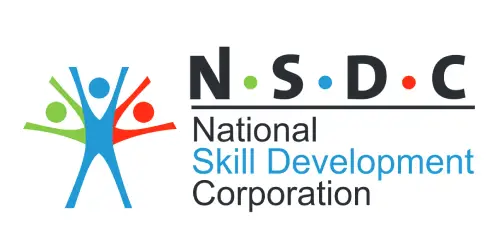Practical Accounting Training in Malayalam
Are you passionate to learn practical accounting, Tally, ERP and Taxation in Malayalam Language? Entri provides an online Business Accounting and Finance Certification Programme that will help you reach your dreams. Grab your seats now!
_2960.webp)
_9491.webp)




Course Overview
‘Business Accounting & Finance Certification Programme’ is a bridge programme designed for commerce graduates to excel in their accounting or finance careers. Entri is keen on providing 100% placement assistance along with soft skill training, interview preparation and career support. For those who want to work as accountants or finance professionals, the Business Accounting and Finance Certification Programme is the best option. The course covers everything from basic concepts to complex subjects and includes practical projects. Focusing on TallyPrime and Excel will help you acquire useful abilities. With a focus on UAE Accounting & Finance, knowledge of banking, taxation, labor law, and corporate law is offered.

Industry Experts And Qualified CAs To Guide

Practical Accounting Assignments And Evaluation (Tally)

Certification

Internship

60 Hours Of Video Classes On Accounting Concepts And ERP Software

Live Doubt-Clearing Session

Placement Assistance

Self-Paced Learning Contents in Native Language (Malayalam)
Get Started with Full Stack Web Development for Free !
Become Job ready with Entri. Explore the basics of full stack web development with our free classes in Malayalam. Perfect to get aligned with the subject !
Skills for a Practical Accountant
If you want to be successful in the field of Practical Accounting , these are the skills that you need to possess.
Placement Videos
Here what our users have to say!
Tools Covered in Practical Accounting Course

_8762.webp)
_6379.webp)
Job Roles
Given are the job roles you could pursue after completing Business Accounting and Finance Certificate Programme
Financial Controller
A Financial Controller maintains accounts and oversees that the company is not overshooting its expense budget. They also perform cash management functions by handling reimbursements, account payables and payroll-related things.
Assistant Finance Manager
To handle purchases and verify account balances, an assistant finance manager produces financial and business paperwork. They carry out standard computations to generate reports upon the financial manager's request.
Accountant
At first, they often work as junior accountants. Their responsibilities include balance sheet analysis and financial record keeping. Accountants provide specialized reports that outline the company's financial situation.
Financial Analyst
To provide corporate statistics on profit, stability, and other prospects, a financial analyst will study data. The main responsibilities of this position will be conducting the study and writing reports thereafter.
Senior Accountant
After being promoted from the junior position, you become a Senior Accountant. Senior Accountant will create financial sheets for a financial audit by preparing balance sheets, revenue, and expense reports.
Account Executive
They primarily support the company's lead generation, sales closing, and customer retention efforts. They develop sales tactics and inform the customer about the benefits of the product.
Finance Manager
Managing a client's assets according with their putting money preferences is the main responsibility of a financial manager. They will manage and look after the client's financial portfolio to prevent losses.
Account Manager
An Account Manager handles clients and their sales. They sustain the organization’s existing relationships with a group of clients.
Practical Accounting Course Curriculum
The Practical Accounting in Malayalam Course Curriculum is given here. The key subjects covered in the course are listed in this part to give you an idea of what to expect from the whole program.
- Accounting Principles & Concepts
- Journal & Ledger
- Preparation of Financial Statements
- Bank Reconciliation Statement
- Types of Company
- Sole Proprietorship
- Partnership Firm
- Source Of income
- Tax slab
- Assessment Year and Previous year
- Key Provisions of Profit and gains from business /Profession
- Income Tax filing
- Advance Tax
- TDS & TCS Compliance
- Accounting for taxes
- Concept of GST
- CGST, SGST, IGST
- Tax Structure
- Exemptions
- Input Tax Credit
- Taxability
- Reverse Charge
- Filing Returns
- Introduction of banking
- Types of banks
- Objectives of banking
- Bank funding
- Introduction
- Key provisions & compliance of LLP Act
- Key provisions & compliance of Companies Act
- Introduction
- Key Provisions of ESI & PF Act
- Accounting & Compliances of ESI & PF
- Company Creation
- Creation of Accounting Masters & Inventory Masters
- Voucher Creation
- GST
- TDS & TCS
- Payroll
- Reports – Profit and loss account, balance sheet
- Cost Centre & Cost Categories
- Ratio Analysis
- Other tools in tally
- Introduction to Zoho
- Ledger Creation
- Vendor Creation
- Customer Creation
- Ledger Alterations
- Vendor and Customer Alteration
- Stock Item Creation
- Journal Entry Posting
- Journal Entry Alteration
- Purchase
- Purchase Return
- Purchase Payment
- Sales
- Sales Return
- Sales Payment
- Closing Adjustments
- Basic Etiquette
- Correspondence
- How to prepare a resume
- How to attend an interview
Blogs
Check out our popular blogs!
Cost accounting focuses specifically on the costs associated with running your business. Before you can understand cost accounting in detail, it is important to understand what does it exactly mean, the different types of cost accounting and the advantages of this type of financial tracking.
Accounting has a pivotal role in the monetary management of a corporation. It would be quite troublesome for an organization to survive while not knowing who can analyze profits and losses, manage funds and guarantee optimum utilization of financial resources.
As accounting is the backbone of every business organization so the field of accounting always remains in demand. Accounting is needed in every industry. Inorder to work in the accounting industry, you must have remarkable skills.
Accounting jobs in Germany present diverse opportunities across industries and companies. Typically, eligibility involves possessing an accounting or finance degree, often coupled with certifications like CPA or ACCA.
Eligibility for Practical Accounting Course
This programme is designed for commerce graduates who intend to pursue a career in accounting or are fond of finance accounting.
- Bcom graduates
- Anyone with a commerce background
- Anyone seeking a job as an accountant
Prerequisites for Practical Accounting Course
Here are the prerequisites for a practical accounting course, all of which can be learned with some basic studying beforehand if you don't already have them:

Basic understanding of accounting principles
This includes the fundamental concepts of debits and credits, double-entry bookkeeping, and financial statements.

Familiarity of debits and credits
Every transaction essentially affects two accounts. Knowing how to record transactions in an accounting system requires a comprehension of debits and credits.

Proficiency in basic math operations
In order to keep track of transactions, create financial statements, and examine financial information, you will need them.

Ability to use a spreadsheet program
Spreadsheet tools are used for accounting. Accounting professionals may record, arrange, and evaluate financial data with the use of spreadsheets.
Why Live Sessions?

Enhanced Involvement
Engage students directly, respond to inquiries promptly, and foster a more vibrant learning environment.
Real-time Q&A
This feature creates an interactive learning environment by allowing users to ask questions and get quick replies.
Clarification of doubts
The instructor's timely answers help comprehension by dispelling doubts.
Flexible scheduling
The live and recorded session options accommodate a range of schedules and time zones.
Instant feedback
Students' comments can be sent to teachers immediately, giving them the opportunity to make changes and enhance the course in real time.
Accounting Professionals to Guide You
To get a competitive advantage, get in touch with our team of experts; they will provide invaluable counsel and support. Find out who our mentors are!
Meet Our Top Faculties
Discover the secret to unlock your career potential! Learn the knowledge and abilities required to be successful in this field by getting to know our Practical Accounting experts.
Practical Accounting Certificates
Courses Recognised by




Frequently Asked Questions
What Our Students are Saying
 4.8
( Ratings)
4.8
( Ratings)
Key Learning Outcomes
Here are some key learnings you can expect to gain from a practical accounting course:
The accounting cycle
This entails being aware of the procedures that are involved in documenting financial transactions, from the time a transaction is first recorded until financial statements are prepared. You will gain knowledge about creating a trial balance, publishing to ledger accounts, journalizing, and making changes.
Financial statement preparation
The income statement, balance sheet, and cash flow statement are the three primary financial statements that you will learn how to produce. These financial statements offer a thorough summary of the health and performance of a company's finances.
Financial statement analysis using ratios
This entails becoming knowledgeable about how to evaluate a company's financial health using financial ratios. It is possible to gauge profitability, liquidity, solvency, and efficiency using ratios.
Accounting software usage
You will learn how to utilize accounting software applications to record transactions, create reports, and automate accounting duties in the majority of practical accounting courses. Given that the majority of organizations in today's workplace rely on accounting software, this is a vital skill.

Practical Accounting Course - FAQs
Entri Elevate - Business Accounting & Finance Certification Programme covers every major section from the fundamentals to practical experiments. This programme will provide applicable exercises and real-life examples in financial accounting to strengthen the concepts. A brief is provided below.
- Fundamentals of Accounting
- Business structure
- Computerised Accounting Tally, ERP
- Direct Taxation Compliance & Indirect
- Taxation
- Banking
- Law module
- Corporate and Labor
- UA Accounting
- Finance module
Studying a practical accounting/financial accounting course can extend diverse career opportunities in the field of accounting and finance. Some of the potential career choices are:
- Office Accountant
- Bookkeeper
- Accounts Payable/Receivable Clerk
- Payroll Administrator
- Staff Accountant
- Financial Analyst
This programme is designed for commerce graduates who intend to pursue a career in accounting or are fond of finance accounting.
- Bcom graduates
- Anyone with a commerce background
- Anyone seeking a job as an accountant
Entri News
Advantages of Learning from Entri
Elevate Learning Experience

Mock Websites for Real Experience
Immerse yourself in practical scenarios with simulated government portals such as GST, ITR, and ESI, providing hands-on learning opportunities

PwC Certified Tax Practical Programme
Gain recognition with a prestigious certification endorsed by PwC, elevating your expertise in taxation within India's intricate framework.

Industry Experts & Qualified CA Faculties
Learn from the best with experienced industry professionals and certified chartered accountants guiding you through the course curriculum.

Computerized Accounting Assignments & Assessments
Apply theoretical knowledge to practical scenarios through computerized accounting assignments and assessments, reinforcing your learning.
Career Support

Mentorship Support
Receive personalized guidance and support from experienced mentors throughout your learning journey, helping you navigate challenges and achieve your career goals.

Soft Skill & Interview Training
Develop essential soft skills and receive interview training, preparing you for professional interactions and job interviews in the field of accounting and finance.

Placement Assistance
Benefit from dedicated placement assistance services, bridging the gap between completing the course and landing your dream job in the industry.
Who can apply?
- Students
- Professionals
- Career Switchers
- Job Seekers
- House Wife
- Unemployed
- Freelancers

































_2376.webp)




















